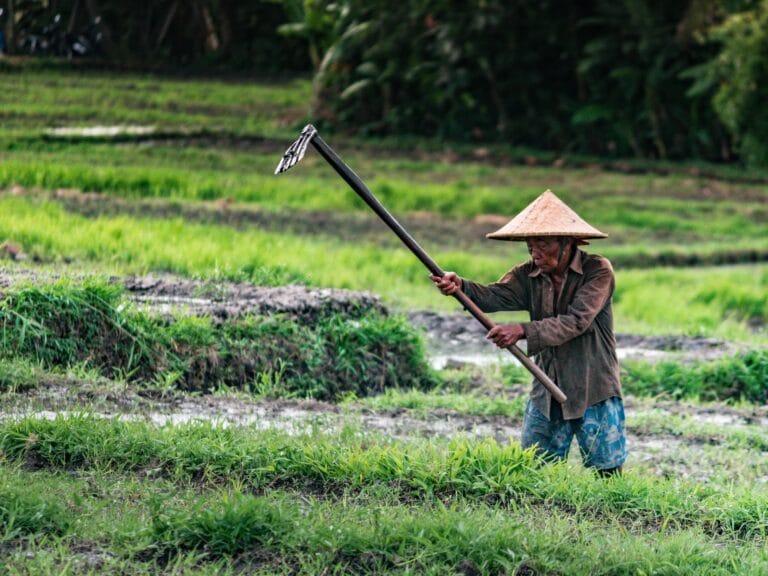Swampland is among suboptimal land types commonly found in coastal areas in Demak. It has
become the source of livelihood and has a vital ecosystem service, especially the mangrove forests
that naturally grow along the shoreline. Over decades, the local communities have been massively
practicing seafood cultivation. Unfortunately, many of them had irresponsibly cleared the mangrove
forests to build the fish ponds. In the 1980s, the mangrove almost disappeared as it had been largely
converted into ponds that made the coast severely degraded.
Not only mangrove that disappeared, the farmers’ ponds were also faded away due to intense rob
flood and erosion. It is also hard to cultivate commodities like milkfish, shrimp, and shellfish since
there’s no mangrove that provides a healthy nursery and quality nutrient. Seeing this condition, Blue
Forests, along with other organizations, have been implementing ecosystem restoration and
aquaculture farmers’ empowerment under the Building with Nature (BwN) project during 2015-
2020.
The program has a series of activities where one of them was conducting Coastal Field Schools (CFS)
in multiple villages in Demak such as Bedono, Timbulsloko, and Tambakbulusan. CFS facilitates the
farmers to identify the problem they face and how to address them. CFS served as an empowerment
tool that helped the farmers to observe what kinds of aquaculture products that are viable for their
local condition, how to sustainably cultivate them, and produce higher yields which positively affect
their income. The application of field school has been widely used and successfully increased ponds
productivity and profitability through technical advice and training.
Recognizing this program could help the farmers to sustainably transform their unproductive
wetland into productive one, TJF is working with Blue Forests to disseminate their research results
and program impact to wider audiences. A heavily damaged mangrove and ponds area like Bedono
village is selected to be our research focus because it is necessary to encourage farmers to maintain
their ponds and convince them that there are possible ways to manage the ponds to be productive
again. So that the farmers could secure the food resource. It will also prevent them from clearing the
mangrove forest in the different areas to build another pond. Expectedly, the mangrove and coastal
region outside the degraded land would remain intact.





